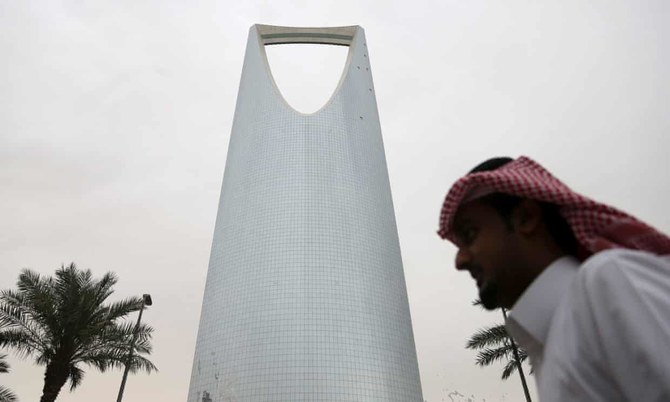DUBAI/RIYADH: The COVID-19 crisis and the resulting fall in demand for oil hit Saudi Arabia’s finances in the first quarter of 2020.
The Kingdom’s Ministry of Finance announced its budget for the first three months of the year, taking in March when economic lockdowns were introduced across most countries in the world and oil prices fell dramatically.
The figures showed a government deficit of SR34.1 billion ($9.06 billion), mainly as a result of a 24 percent decline in oil revenue compared with the same period last year. Global oil prices roughly halved in the three months covered by the budget statement. Total revenue for the quarter amounted to SR192 billion, down 22 percent year on year.
There was also a 26 percent decline in income from taxes, to SR30.6 billion, including excise and sales taxes, as consumer and economic activity dropped off toward the end of the quarter.
Revenues from non-oil activity — which policymakers are looking to boost as part of the move toward economic diversification — fell by 17 percent to SR63.6 billion.
There was a big increase in expenditure on infrastructure and transportation in the quarter, up 81 percent to SR12.2 billion, while the biggest item on the cost side, military spending, saw a 6 percent rise to SR53 billion.
Finance minister Mohammed Al-Jadaan said last week in a budget preview that the Kingdom would recover from the twin challenges of the oil price and the economic hit from the pandemic. “We will get over this in a strong position. We have gone through and seen other deeper crises in the past, and survived them,” he said.
Al-Jadaan projected a deficit of SR187 billion for the year, which would be financed by borrowing, cost reductions and some draw down from reserves, compared with a deficit of SR131 billion last year. He said he is looking for further cost savings from government budgets.
The Saudi Arabian Monetary Authority also announced that foreign reserves had fallen to $464 billion in March, down $27 billion and the biggest monthly decline in 20 years, as the Kingdom dipped into its vast reserves to offset the decline in oil and other revenues.
Monica Malik, chief economist at Abu Dhabi Commercial Bank, said that the decline in reserves “reflected both higher government funding to cover the budget deficit and the support packages announced this month to help counterbalance the impact of COVID-19.”
Analysts believe the Kingdom will fund some of its deficit through international capital markets, following on from the successful $7 billion foreign bond issue earlier this month, which was several times oversubscribed.
Mazen Alsudairi, head of research at Riyadh-based Al Rajhi Capital, said he expects further bond issuance. “It will increase because the government will fund most of the deficit through debt,” he told Arab News.
He added that the impact of the pandemic would be more visible in the current quarter.

















